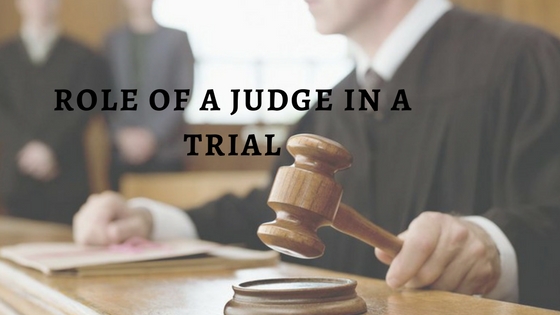Aapka Consultant Judgment Series- In this series, we are providing case analysis of Landmark Judgments of Hon’ble Supreme Court of India.
Ram Chander v. State of Haryana
AIR 1981 SC 1036: (1981) 3 SCC 191
JUDGES: Baharul Islam and O. Chinnappa Reddy
Date of Decision: 25-02-1981
FACTS:-
The appellant Ram Chander and Mange were tried and convicted for an offence under Sections 302 r/w Section 34 of IPC, 1860 for the murder of Dunni by the Ld. Addl. Sessions Judge and sentenced to life imprisonment. On appeal, the High Court acquitted Mange but confirmed the conviction and sentence of the appellant. In appeal by special leave, it was contended that the conviction and sentence vitiates the principles of fair trial as the Addl. Sessions Judge rebuked the witnesses and threatened them for the prosecution for perjury. Hence the present matter.
ISSUE:-
What is the true role of a Judge who is trying a criminal case?
JUDGMENT:-
The Hon’ble Supreme Court has observed that there exists an adversary system of trial in which the presiding Judge assumes the role of an umpire of a cricket match or a referee of a football match by allowing the trial to develop into a contest between the prosecution and the defence. Simultaneously, the inevitable distortions were arising out of combative and competitive elements were entering the trial procedure. If the criminal court is to be an effective instrument for dispensing justice then the presiding Judge in the trial court must cease to be an spectator and a mere recording machine, instead he must become an active participant in the ongoing trial by putting certain questions to the witnesses in order to ascertain the truth.
Further the Court observed that every criminal trial is a voyage of discovery in which truth is the quest. Now it is the duty of the presiding Judge in a trial to explore every avenue open to him in order to ascertain the truth in the interest of justice. For this, he has invested with certain powers under Section 165 of the Indian Evidence Act, 1872. A Judge has a right to put questions to witnesses and the right is so wide that he can ‘any question he pleases’ in any form, at any time, of any witness, or of the parties about any fact, relevant or irrelevant. Also Section 172(2) of the Code of Criminal Procedure, 1973 enables the court to send for police diaries and use them to aid it in the trial.
The Court also observed that with such wide powers vested with the presiding Judge, he must actively participate in the trial in order to elicit the truth to protect the weak and innocent people and to dispense justice fairly. He must not assume the role of a prosecutor while putting questions to the witnesses. The questions which he is asking must not be to frighten, coerce, confuse or intimate the witness. He must take the prosecution and the defence with him. The Court, the prosecution and the defence must work with a team whose common goal is to dispense justice, a team whose captain is the Judge.
HELD:-
The Court held that the presiding Judge must cease to be a spectator or a mere recording machine; instead he should take active interest in the trial by putting certain questions to the witness to ascertain the truth.
To Get Legal Opinion from Advocates/ Legal Experts, Please click here
To Get Legal Opinion from Retired Hon’ble Judges, Please click here












